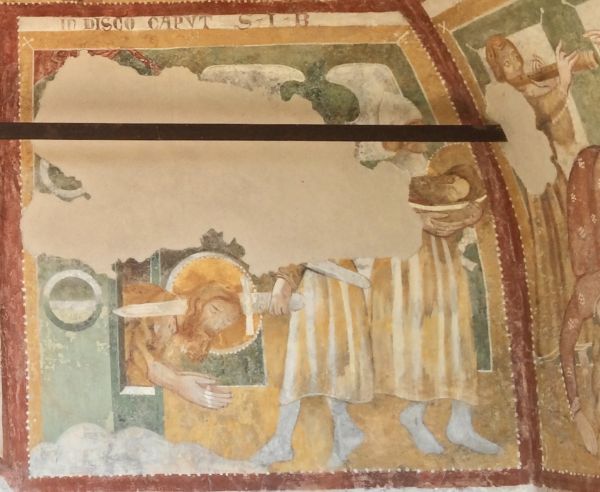The evangelist Mark illustrates the circumstances of the Baptist's martyrdom.
Herod wanted to have John killed for fear of revolts, and because he reproached him for his offences.
But he feared the crowd, who considered him a prophet.
The theme of persecution combined with the people's favour for the man of God is also present in St Francis.
In the Sources we read:
"Since the herald of Christ was famous for these and many other prodigies, the people paid attention to his words, as if he spoke as an Angel of the Lord.
For the prerogative of the lofty virtues, the spirit of prophecy, the thaumaturgic power, the mission to preach coming from heaven, the obedience of creatures deprived of reason, the sudden conversions of hearts brought about by hearing his word, the knowledge infused by the Holy Spirit and superior to human doctrine, the authorisation to preach granted by the Supreme Pontiff by divine revelation, as well as the Rule, which defines the form of preaching, confirmed by the Vicar of Christ himself and, finally, the signs of the Supreme King impressed like a seal on his body, are like ten testimonies for the whole world and confirm without a shadow of a doubt that Francis, the herald of Christ, is worthy of veneration for the mission received, authentic in the doctrine taught, admirable for his holiness and that, therefore, he preached the Gospel of Christ as a true envoy of God" (FF 1221).
For this he too encountered persecution.
But to his brothers, in the Regola non bollata, he reminds them:
"And let all the brothers, wherever they are, remember that they have given themselves and abandoned their bodies to our Lord Jesus Christ.
And for his love they must expose themselves to enemies both visible and invisible, for the Lord says:
'He who loses his soul for my sake will save it for eternal life' " (FF 45).
Francis sacrificed his whole self on the altar of charity and poverty for the sake of the Kingdom, leaving everyone a shining example.
«And immediately the king sent a guard and ordered his head to be brought in, and went and beheaded him in the prison» (Mk 6:27)
Friday, 4th wk. in O.T. (Mk 6:14-29)












